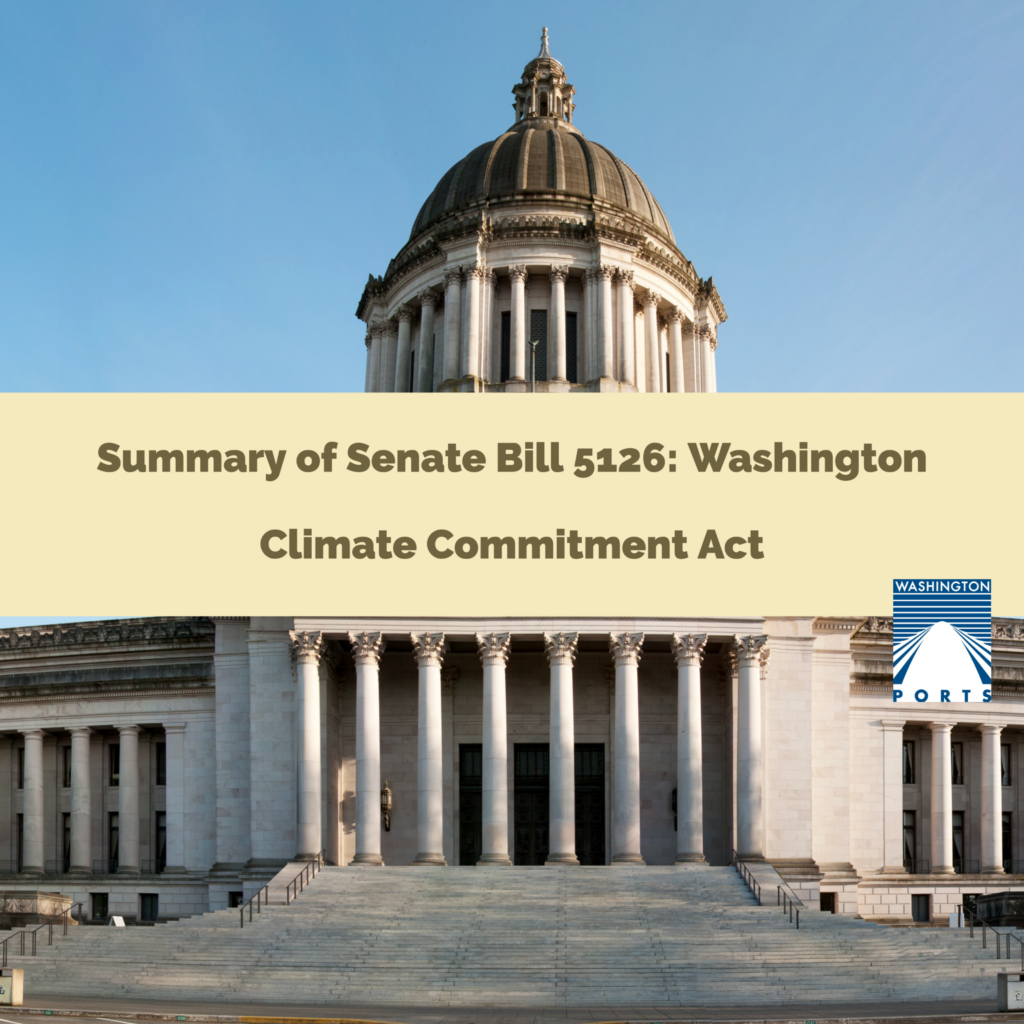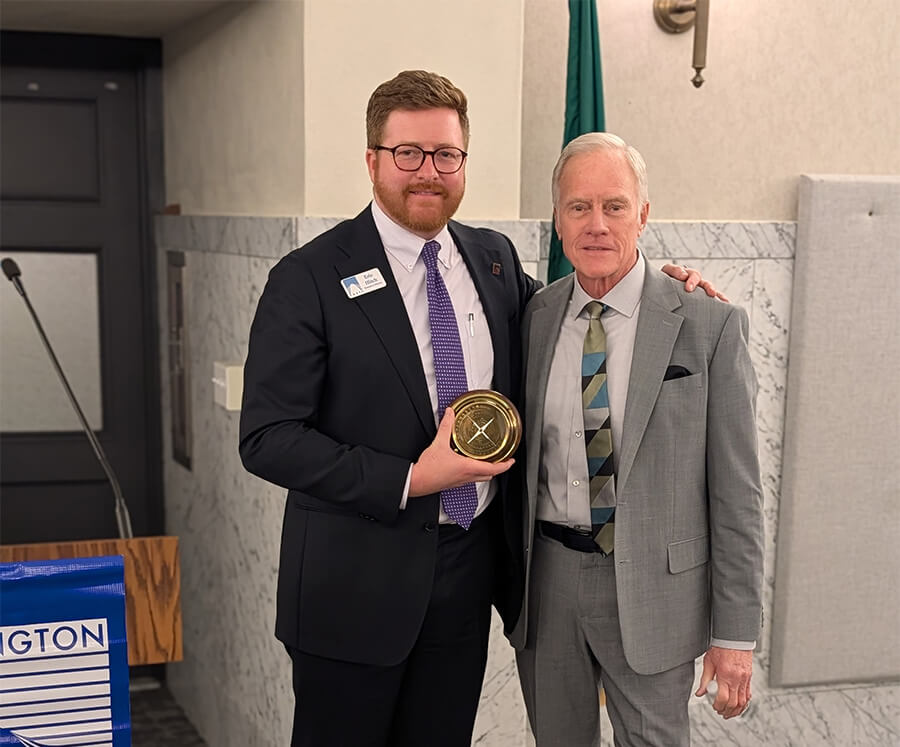
By Gerry O’Keefe
Senior Director of Environmental Affairs
WPPA staff met with the chairman of the Senate Environment, Energy and Technology Committee this week to share our support for carbon pricing mechanisms to the extent they generate revenue for transportation purposes. Of note, the chairman observed that the fate of carbon pricing this session is bound to enacting environmental just, clean fuel standards and transportation legislation. If this is an accurate assessment and an agreement on a each of these policies is a condition for passing any of them, the chances for success narrows.
The bill heard in the Senate Environment, Energy and Technology Committee included the following provisions:
-
Requires the Governor to establish a comprehensive program to implement the state’s climate commitment and convene a Climate Commitment Task Force.
-
Establishes a cap and invest program for greenhouse gas (GHG) emissions to be implemented by the Department of Ecology (Ecology).
-
Directs distribution of auction revenues for specified purposes including clean transportation, natural climate resiliency, clean energy transition and assistance, and energy efficiency projects.
-
Convenes an Environmental Justice and Equity Advisory Panel to provide recommendations on the development and implementation of the cap and invest program.
-
Authorizes Ecology to require persons who produce or distribute fossil fuels or other products that emit GHG in Washington, to comply with air quality standards, emission standards, or GHG emission limitations.
-
Provides a definition of emission, emission standard, and emission limitation as applied to GHG emissions that includes indirect emissions from the production or distribution of petroleum products or natural gas
WPPA previously testified in opposition to the Governor’s bill because it fails to commit resources. SB 5126 has not yet been scheduled for an executive session in the Senate Committee.
Notable in testimony on the bill was the intensity of opposition from spokespersons from frontline or underrepresented communities. Experience with the cap and trade program in California has generated determine opposition to the cap and trade policy in favor of a carbon tax.




